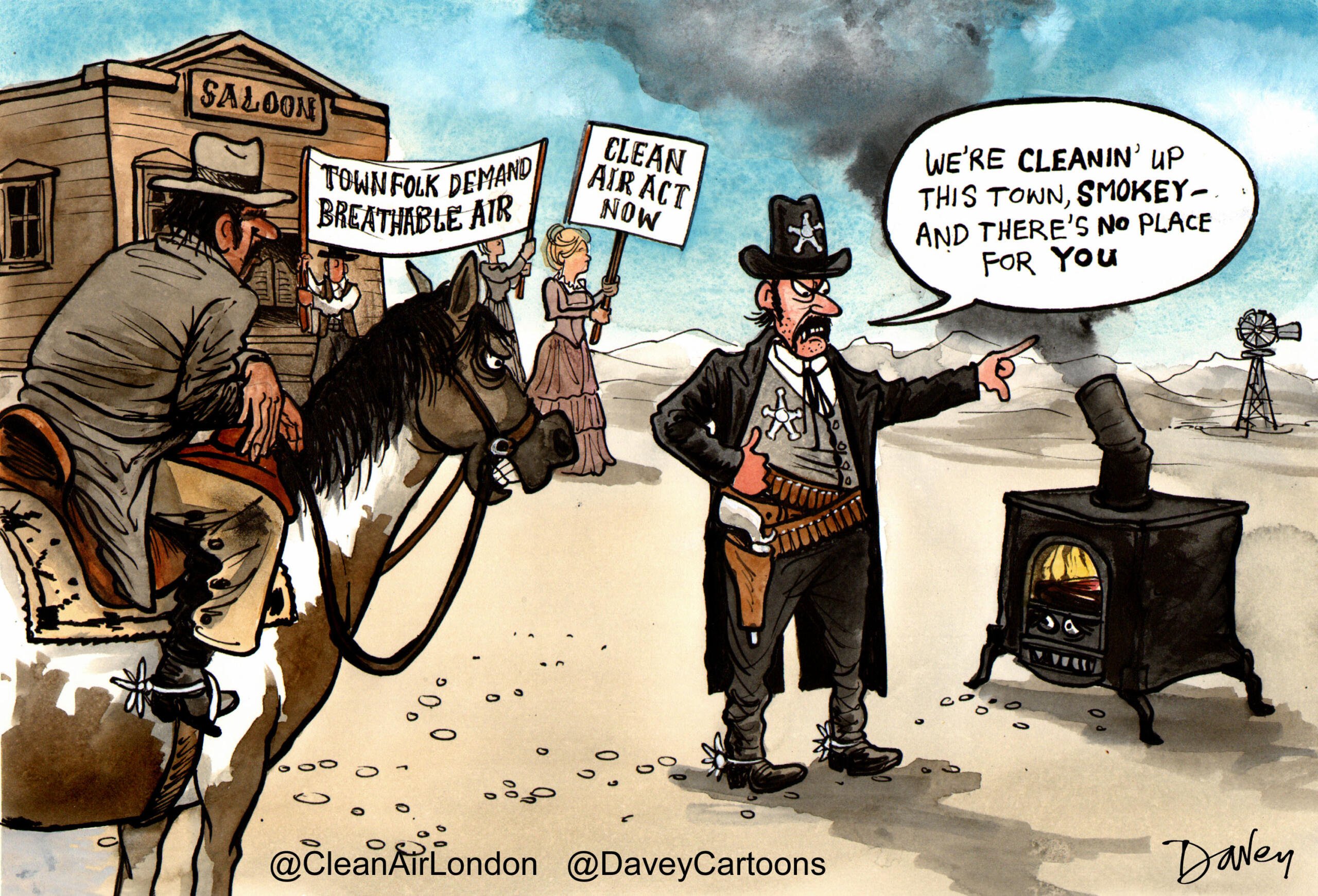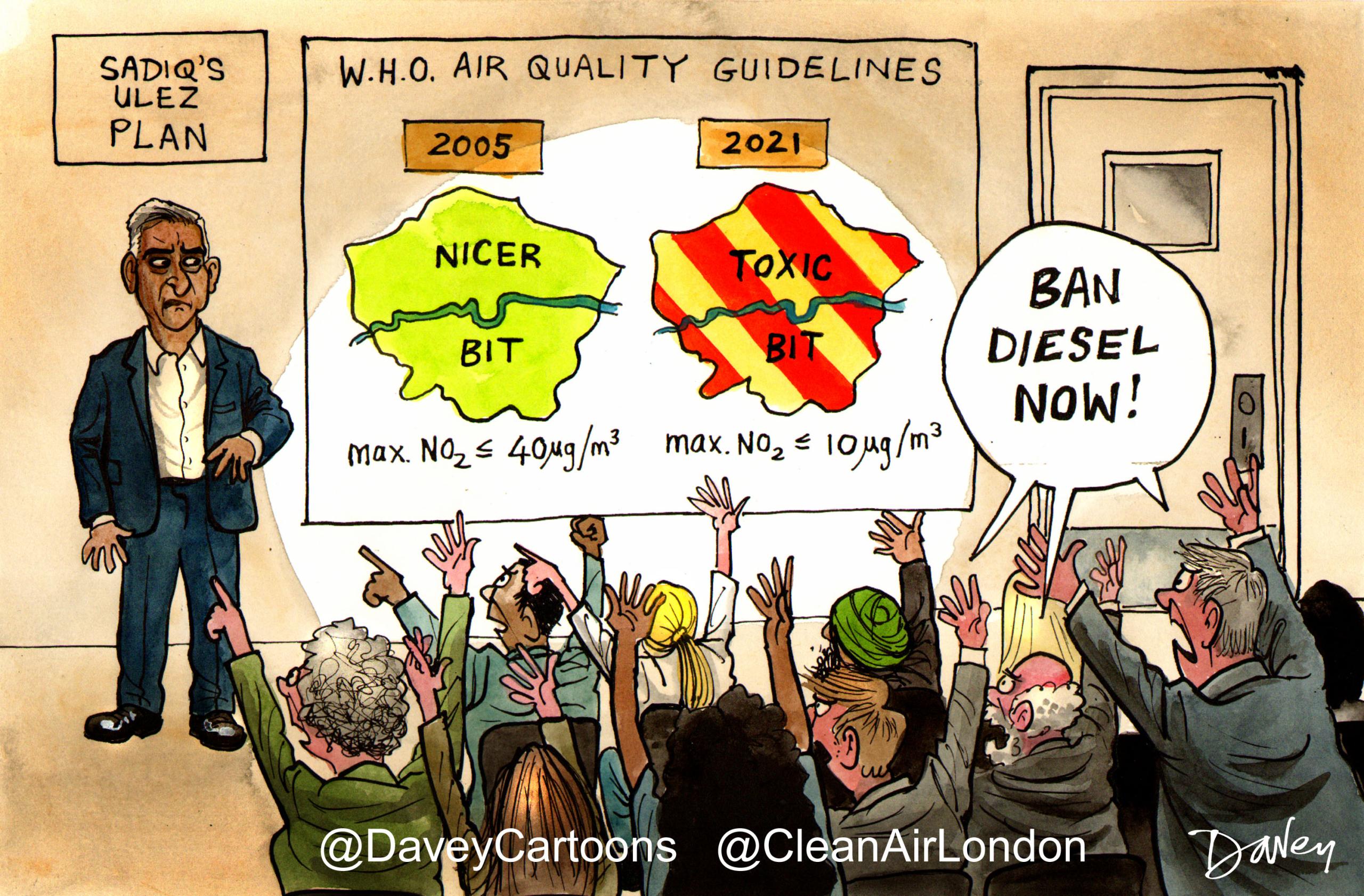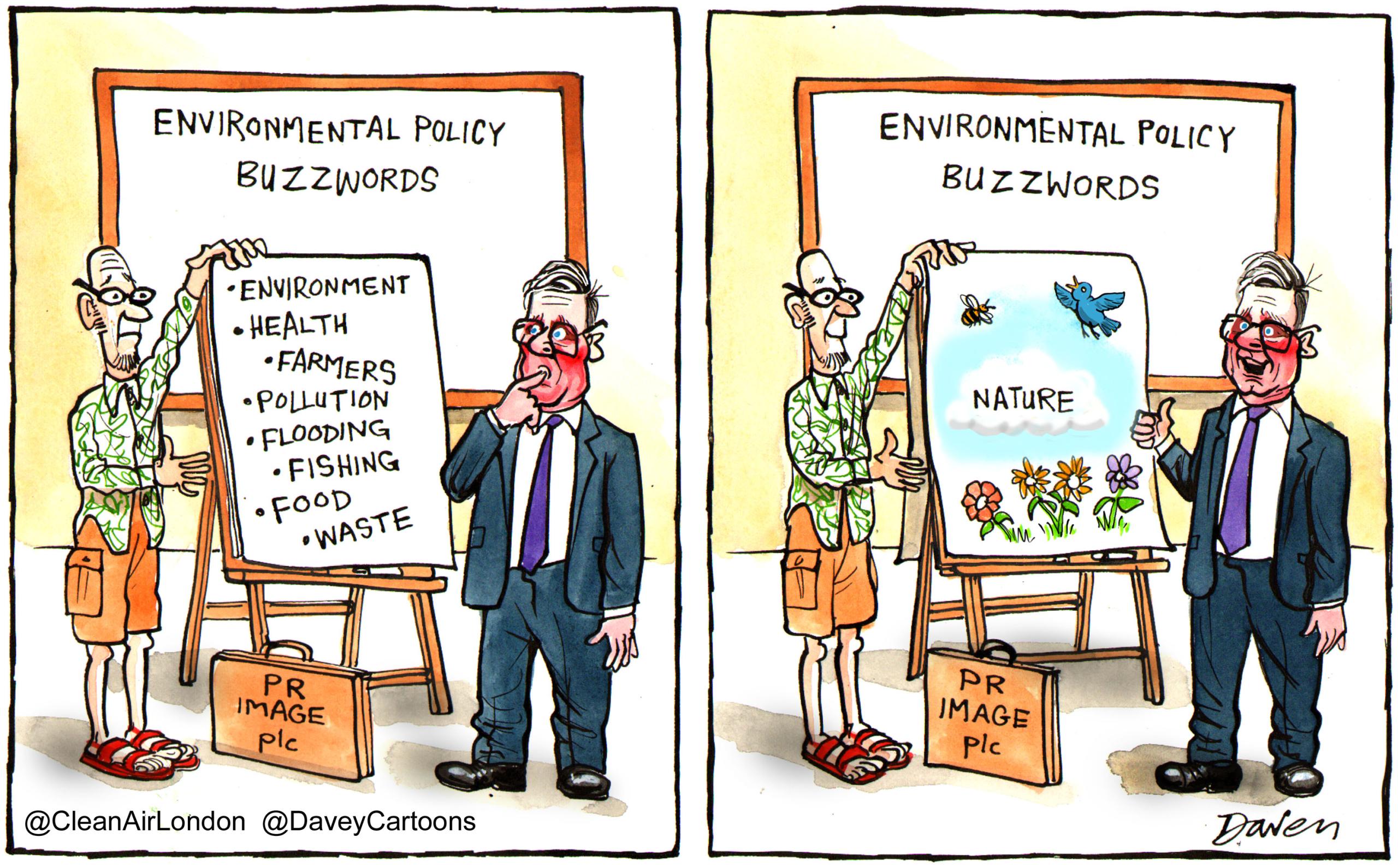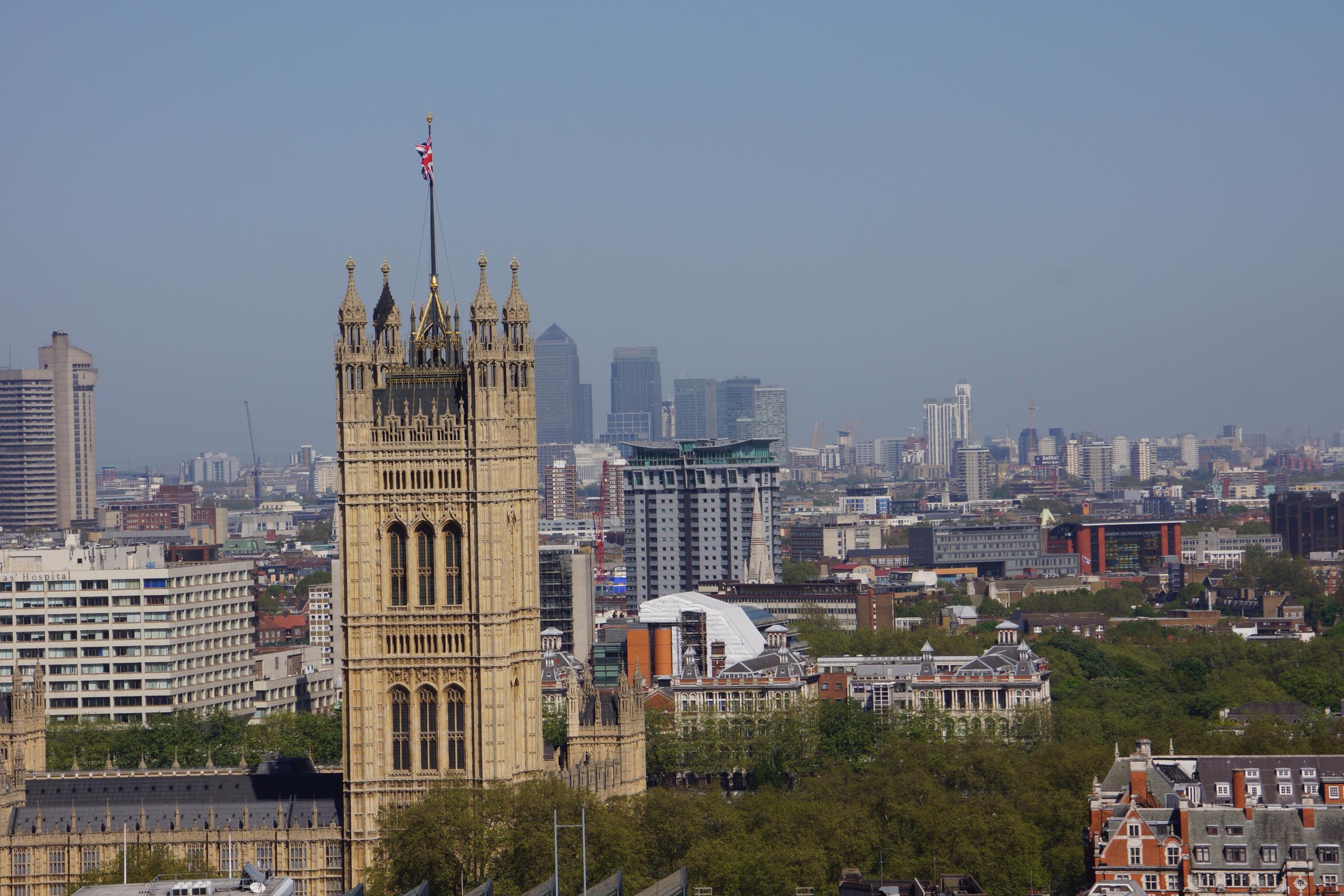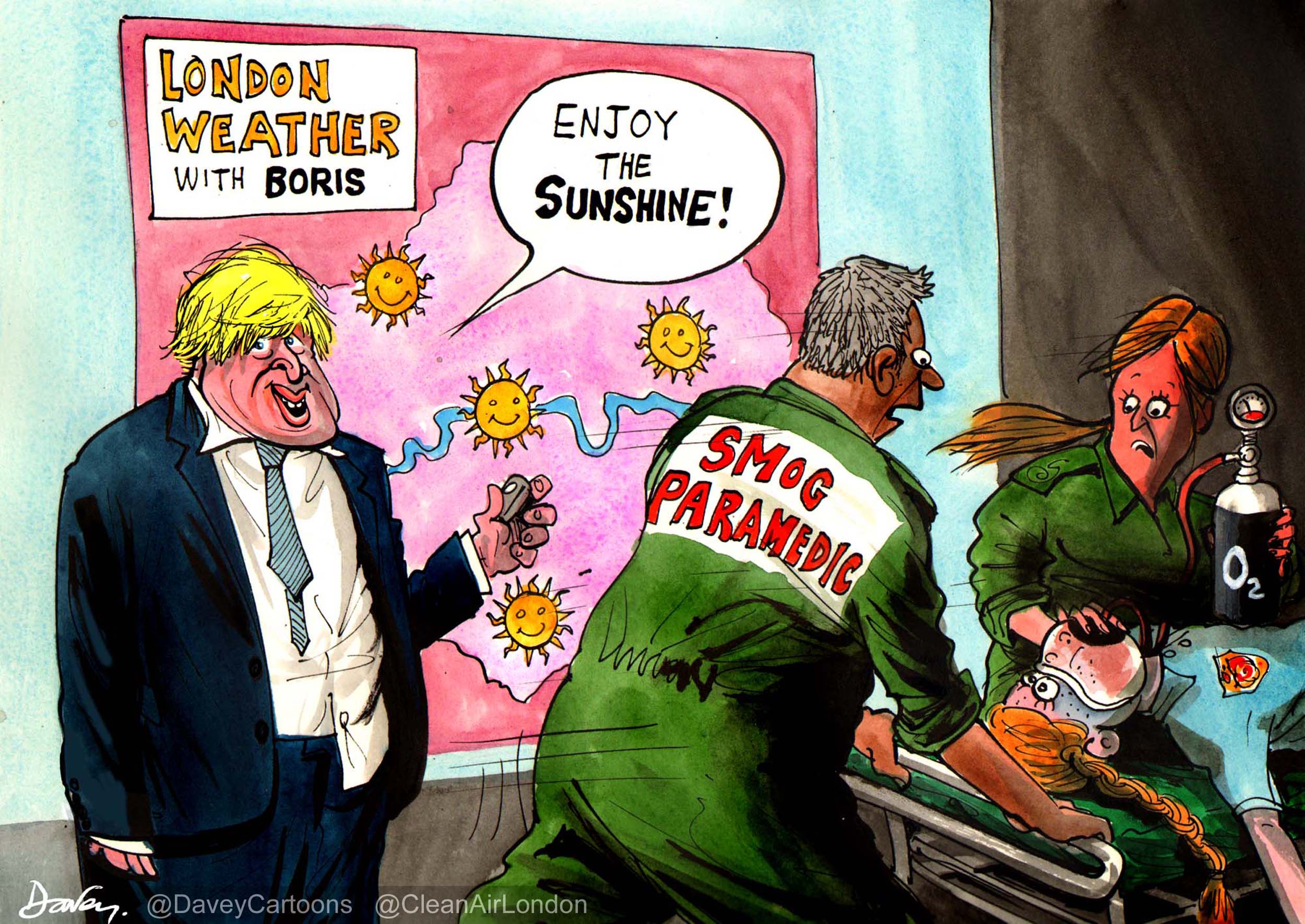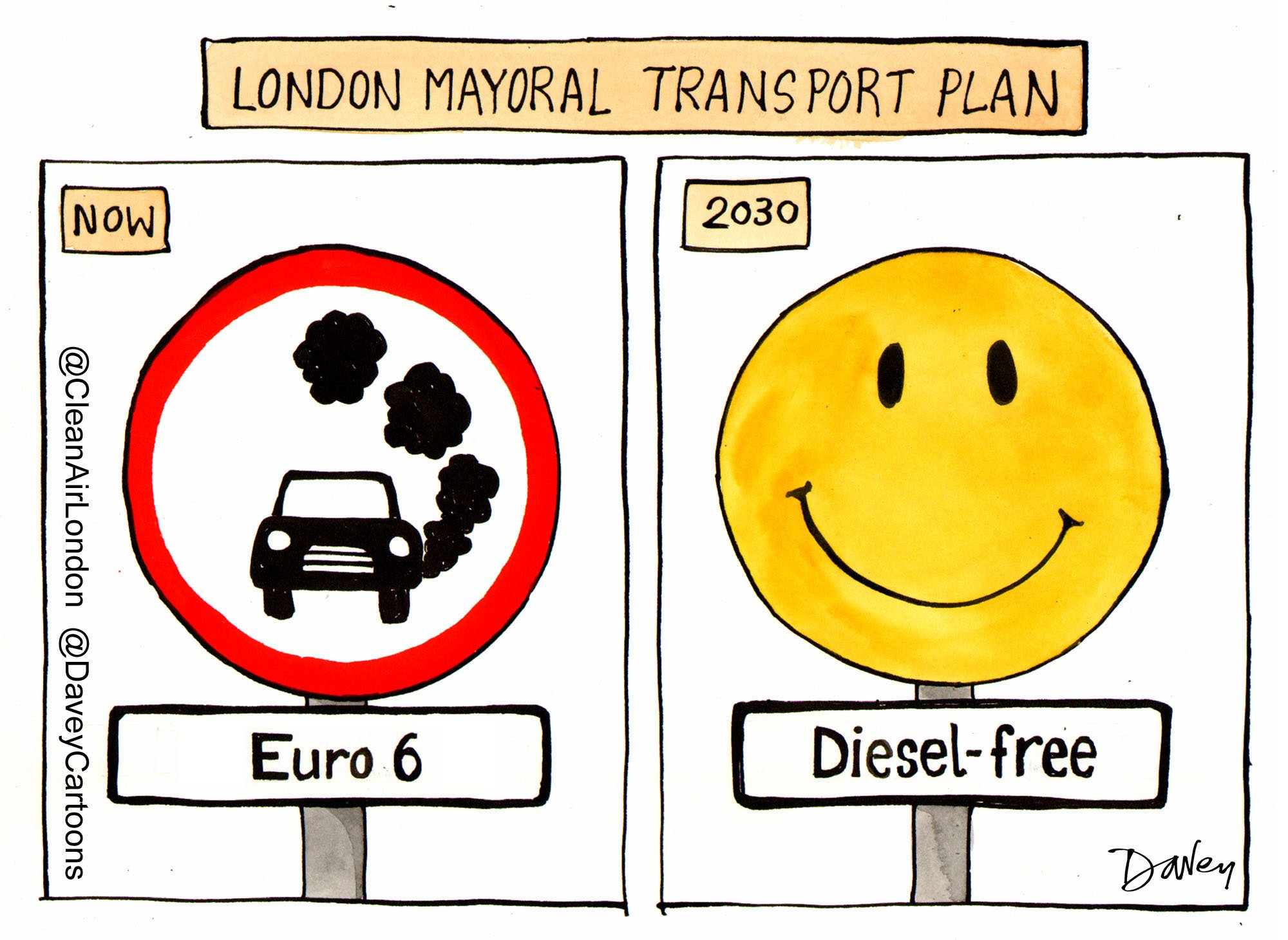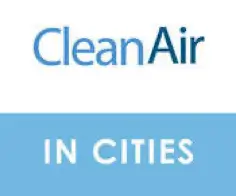Clean Air in London (CAL) calls for wood burning ban in urban areas
CAL has identified 12 facts or principles about wood burning, climate change and air quality after seven months of constructive correspondence with the Climate Change Committee (CCC)
The CCC has confirmed its advice “that Government should not support wood-burning stoves as part of climate policy and that their use should be phased out over time”. One of its Advisory Expert Groups has recommended “Eliminate home installation of new wood-burning stoves by 2030” and “All urban wood-burning stoves eliminated by 2050. Enforce fuel standards”. These recommendations are are consistent with the CCC’s scenarios
CAL calls for Parliamentary Select Committee investigation into domestic wood burning and a new Clean Air Act before the 70th anniversary of the Great Smog in December 1952
Wood smoke continues to plague cities and towns across the UK over 65 years after the first Clean Air Act 1956 largely banned it in urban areas. The new Environment Act 2021 fails to amend the emission limits for appliance exemptions in wood burning stoves.
Defra’s Clean Air Strategy, published on 14 January 2019, stated on page 10 [Note 1]:
“Burning wood and coal in open fires and stoves makes up 38% of the UK’s primary emissions of fine particulate matter (PM2.5).”[Note 2]
This estimate was repeated in Defra’s National Statistics release titled ‘Emissions of air pollutants in the UK – Particulate matter (PM10 and PM2.5)’ as recently as 17 February 2021 (updated 26 February 2021)”[Note 3]:
“The use of wood in domestic combustion activities accounted for 38 per cent of PM2.5 emissions in 2019. Emissions of PM2.5 from domestic wood burning more than doubled between 2003 and 2019 (from 20 to 41 thousand tonnes) and increased by 1.0 per cent between 2018 and 2019.” Note 5
CAL has therefore undertaken a landmark investigation into the policies, practice and evidence around wood burning. As part of this investigation, CAL has corresponded constructively with Chris Stark, Chief Executive of the Climate Change Committee (CCC) and a senior member of his team to clarify the CCC’s position on wood burning, climate change, air quality and related matters. As a result, CAL has identified 12 facts or principles.
CAL is publishing its correspondence with the CCC in letters dated 4 May, 8 June, 14 August, 23 November and 21 December 2021. The timeline of CAL’s correspondence with the CCC, including a number of emails, is shown under ‘Useful links and resources’.
Please note that CAL’s letter to Chris Stark dated 14 August illustrated the unlikely circumstances or combination of circumstances when wood or biomass burning might be considered ‘low carbon’ (on page 6). That list represented CAL’s examples not the CCC’s.
Quotes
Simon Birkett, Founder and Director of Clean Air in London, said:
“Clean Air in London (CAL) has spent many months clearing the thick smoke around wood burning.
“In a ground-breaking investigation, CAL has identified 12 facts or fundamental principles about wood burning, climate change and air quality after detailed and constructive correspondence with the Climate Change Committee over seven months.
“With the World Health Organisation halving its air quality guideline for fine particulate matter (PM2.5) on 22 September 2021 and the fig leaves of ‘climate policy’, ‘low carbon heat’ and ‘renewable energy’ finally removed, the days of wood burning in domestic premises are numbered.
“The facts, taken together, must mean a ban on wood burning in urban areas. CAL has identified a reluctance in Government to call for or effect such a ban despite the obvious need for it.
“Exceptions to a wider ban on domestic wood burning should be limited to the continued use of biomass boilers in large heritage buildings in rural areas off the gas grid when there is no viable alternative.
“CAL wishes to record its thanks to the Climate Change Committee and Chris Stark and his colleague Jenny Hill in particular for their constructive response to our enquiries.”
Climate Change Committee
CAL has identified 12 important facts or principles about wood burning, greenhouse gases, climate change and air pollution and confirmed that domestic wood burning should not be allowed in the UK subject to very limited exceptions:
Air Quality, Climate Change and Net Zero
- Tackling air quality is an important part of the transition to Net Zero greenhouse gas emissions.
- Any outcome that removes greenhouse gas emissions at the expense of air quality would be unacceptable [Note 4].
Wood burning
- Wood is not a fossil fuel (unlike coal, gas and oil).
- Biomass is plant or animal material used as a fuel to produce electricity or heat e.g. wood, energy crops and waste from forests. Biomass is not a fossil fuel.
- Wood burners should not be counted towards either low-carbon heat targets or renewable energy targets. Heat pumps, solar and wind are ‘low carbon assets’.
- Wood burners are not a desirable policy outcome, based on their inefficient heat generation, air quality impacts and the suboptimal use of finite bioenergy resources.
- Burning wood on open fires is highly inefficient (both for energy production and on an air quality basis) and should not be counted towards renewable energy targets.
- Government should not support wood-burning stoves, open fires or the use of any other biomass for heat as part of climate policy and should phase out their use over time.
Limited exceptions for biomass boilers
- There is no role for biomass use in low-carbon heat networks.
- Efficient biomass boilers can play a role in niche uses where air quality legislation would not be breached e.g. larger and hard to insulate rural properties (such as heritage or stately homes with high levels of heat loss), off the gas grid, where heat pumps or hybrid heat pumps (using biofuels) are not viable [Note 5].
- Biomass can be a low-carbon fuel provided its lifecycle emissions can be shown to be below a certain threshold e.g. feedstocks such as residues or waste wood that would not otherwise be used.
- Support for bioenergy use in buildings should be limited to biomethane produced from anaerobic digestion and other niche uses, including hybrid heat pumps systems in ‘hard to treat’ off-gas homes, local combined heat and power systems and small-scale district heat networks.
The CCC confirmed to CAL in its letter dated 21 December 2021 that it has advised “that Government should not support wood burning stoves as part of climate policy and that their use should be phased out over time”. It continues to advise on ‘best use’ of biomass.
Health
Chris Stark’s letter to CAL dated 8 June 2021 pointed to the report by the CCC’s ‘UK Health Expert Advisory Group’ for the Sixth Carbon Budget titled ‘Sustainable Health Equity: Achieving a Net Zero UK (UCL)’ (published 6 November 2020) [Note 6] which stated on page 15:
“It is also worth noting that even though PM2.5 emissions are lower when biomass is used for electricity generation rather than fossil fuels, the role of biomass in achieving net-zero is highly contested given first the time lag (from decades to hundreds of years) between CO2 from biomass combustion being emitted and the sequestration of those emissions via new tree growth, and second the fact that emissions from imported biomass are not accounted for in the UK.”
On the following page (page 16), the report recommended four regulatory interventions:
- Transition to clean energy sources – decarbonising both power generation and industrial, commercial and domestic energy.
- Set a target date to eliminate home installations of wood burning and gas stoves, prioritising elimination in urban areas.
- Set a further target date to eliminate/remove all existing wood burning stoves in urban areas.
- Enforce existing and new fuel standards.
The CCC confirmed to CAL in an email dated 17 October 2021 that:
“…we regularly commission expert advice from bespoke advisory groups, including – on this occasion – advice on the health implications of setting the sixth carbon budget. The views of expert groups are separate to those of the CCC and it is the role of our Committee to form an independent view, drawing in evidence from a host of areas in making their judgement.”
On 17 October 2021, the CCC stated (in italics below) in response to three questions raised by CAL:
- Will the CCC please consider making an explicit public statement in one of its next publications or media releases to address the points raised by CAL in correspondence…?
- Will the CCC please publish an up-to-date glossary defining key terms including those we’ve discussed?
- Please can you say if you have any date or dates in mind or object to CAL’s recommendation that the use of wood burning stoves and open fireplaces should be banned in cities as soon as possible and throughout urban areas by January 2029 (subject also to complying fully with air quality laws and guidelines).
“…we have no plans to revisit our analysis, publish new material or make new recommendations on these topics. We return regularly to our analysis, but I regard these topics – as I’ve mentioned before – as outside of our formal remit.”.
CAL submitted a Freedom of Information request to the CCC dated 23 November 2021 requesting further information e.g. the who, what, why, when and how the CCC considered this important report and decided not to accept [or revisit] its recommendations on matters which it considers are ‘outside [its] formal remit”. The CCC’s response to CAL’s FOI/EIR request in a detailed letter dated 21 December 2021, which attached two annexes, is published on CAL’s website.
The CCC’s letter confirmed that, while “the CCC has no plans to revisit” this matter, it has not taken a decision “not to revisit them” and “regularly returns to its analysis”. The CCC’s annexes were the ‘Terms of Reference for the CCC Advisory Group – Health and climate mitigation’ and a presentation to the CCC titled ‘Health, inequalities and climate change’ by Professor Sir Michael Marmot and others (that took place on 10 July 2020).
CAL understands that the CCC did not consult government departments (e.g. BEIS, Defra or DHSC) or others about Sir Michael Marmot’s report before publishing its Sixth Carbon Budget on 9 December 2020.
Duties
CAL wishes to clarify further the CCC’s duties.
Next steps
In order to address the plague of wood burning, CAL is calling for:
- the installation of wood burning appliances to be banned in domestic properties in England and Wales from 1 January 2025;
- wood burning to be banned urgently in urban areas and in any event in domestic properties throughout England and Wales from 1 January 2029 subject to limited exceptions e.g. heritage properties in rural areas, off the gas grid where there is no viable alternative;
- the CCC and the Government to accept fully and formally four recommendations in the report by your ‘UK Health Expert Advisory Group’ for the Sixth Carbon Budget titled ‘Sustainable Health Equity: Achieving a Net Zero UK (UCL)’ (published 6 November 2020);
- an investigation by a ‘super’ group of Parliamentary select committees, led jointly by the Environmental Audit Committee and the Environment, Food and Rural Affairs Committee, into domestic wood burning; and
- a new Clean Air Act to give local authorities and Metro Mayors the powers they need to decarbonise buildings including homes before the 70th anniversary of the Great Smog in December 1952.
CAL continues to encourage the CCC to revisit its analysis, publish new material and make new recommendations on the topics raised by CAL including: an explicit statement to address the points raised by CAL; an up-to-date glossary of key terms including those raised by CAL; and specific dates to end the installation and use of domestic wood burning appliances and open fires.
Useful links and resources
- Headlines
24 November 2021
Feature: Why we need transparency in the wood-burning industry
https://airqualitynews.com/2021/11/24/feature-why-we-need-transparency-in-the-wood-burning-industry/
5 December 2020
Polluting wood burners become latest target for clean air campaigners
- New World Health Organisation air quality guidelines
https://cleanair.london/health/new-who-air-quality-guidelines/
https://breathelife2030.org/news/w-h-o-air-quality-guidelines/
https://www.healtheffects.org/sites/default/files/jarosinska-who-guidelines-hei-2021.pdf
- Environment Act 2021
13 September 2021
Baroness Jones of Moulsecoomb proposes amendment to ban the sale and use of wood burning appliances including fireplaces
https://bills.parliament.uk/publications/42483/documents/625
9 November 2021
Environment Act 2021 received Royal Assent
https://www.legislation.gov.uk/ukpga/2021/30/contents/enacted
- Defra announcements
17 February 2021
Emissions from domestic burning in the UK
https://deframedia.blog.gov.uk/2021/02/17/emissions-from-domestic-burning-in-the-uk/
National Statistics release
29 April 2021
Concentrations of particulate matters (PM10 and PM2.5)
1 May 2021
Restrictions on sale of coal and wet wood for home burning begin
https://www.gov.uk/government/news/restrictions-on-sale-of-coal-and-wet-wood-for-home-burning-begin
4 May 2021
New law to encourage the burning of cleaner fuels at home
https://deframedia.blog.gov.uk/2021/05/04/new-law-to-encourage-the-burning-of-cleaner-fuels-at-home/
- Digest of UK Energy Statistics (DUKES) 2021 on 29 July 2021
https://www.gov.uk/government/statistics/digest-of-uk-energy-statistics-dukes-2021
Thread https://twitter.com/CleanAirLondon/status/1449299689933873160?s=20
The main report titled ‘Digest of United Kingdom Energy Statistics (DUKES) 2021: Chapter 1 to 7 included Note 7 on page 43:
“Domestic wood consumption has been revised downwards following new estimates arising from a Defra study on domestic consumption. This resulted in a change from 2,241 ktoe to 733 ktoe in the 2018 reference year which has been applied to the time series to 2008. The heat pump series has also been back corrected to 2008, removing a previous step change in 2015. The methodology note (link) provides further detail.”
Note: No link was provided by BEIS to the methodology but it was found here:
https://questions-statements.parliament.uk/written-questions/detail/2021-12-07/88608/
- Scientists at Imperial College London and the National Physical Laboratory estimated that wood burning was responsible for between 23 and 31% of urban derived PM5 in London in a report titled ‘Airborne particles from wood burning in cities’ (published in March 2017)
https://londonair.org.uk/LondonAir/guide/WoodBurning.aspx
London Air Quality Network has also stated that:
“In London in 2014, 69% of people who burn wood were doing so in open fires, a practice banned in the capital by smoke control areas created under the Clean Air Acts. These cover almost all of the built-up area of London.”
https://londonair.org.uk/LondonAir/guide/WoodBurning.aspx
It seems likely that the proportion of primary PM2.5 emissions coming from domestic wood burning will fall, over time, despite an increase in total wood burning, as people move from illegal burning of wood in open fireplaces to wood burning stoves which emit less particulate matter.
- European Environmental Bureau published a report titled ‘Where there’s fire, there’s smoke – Emissions from domestic heating with wood on 21 September 2021
https://eeb.org/library/where-theres-fire-theres-smoke-emissions-from-domestic-heating-with-wood/
- Ongoing research
Defra told CAL on 12 August 2021 that the volume of wood used for domestic burning was confirmed as over-estimated by the “Burning in UK Homes and Gardens” Research Report[8] and [9] published on 10 December 2020. They said that “Additional research is ongoing on emissions factors for wood and other solid fuels”.
https://uk-air.defra.gov.uk/library/reports?report_id=1014
The Department for Energy, Industry and Industrial Strategy (BEIS) published a report titled ‘Digest of UK Energy Statistics [DUKES] annual data for UK, 2020’ on 29 July 2021. Note 7 on page 43 reveals:
“Domestic wood consumption has been revised downwards following new estimates arising from a Defra study on domestic consumption. This resulted in a change from 2,241 ktoe* to 733 ktoe in the 2018 reference year which has been applied to the time series to 2008. The heat pump series has also been back corrected to 2008, removing a previous step change in 2015. The methodology note (link) provides further detail.”
*kilotonnes of oil equivalent.
See the report and Twitter thread here:
https://www.gov.uk/government/statistics/digest-of-uk-energy-statistics-dukes-2020
https://twitter.com/CleanAirLondon/status/1449299689933873160?s=20
CAL has called for Defra to publish its ‘new estimates’ and clarify whether domestic wood burning accounts for 10-15% of the UK’s primary emissions of fine particulate matter (PM2.5) or around 40%.
Separately, the CCC is involved in a three-year modelling study on the air quality and wider health implications of the CCC’s pathways to Net Zero produced as part of it’s the advice on the Sixth Carbon Budget. Results are expected in 2022.
- Climate Change Committee report titled ‘COP26: Key outcomes and next steps for the UK’
2 December 2021
This report highlights the COP26 pledge identifying the importance of protection and restoration of existing forests (page 24).
It also says that the CCC is broadening its outlook to take in vital enablers such as public attitudes; business action; workers and skills; governance; and how costs and benefits are shared (page 5).
https://www.theccc.org.uk/publication/cop26-key-outcomes-and-next-steps-for-the-uk/
- Timeline
1 May 2021
Defra media release on “Restrictions on sale of coal and wet wood for home burning begin”
https://www.gov.uk/government/news/restrictions-on-sale-of-coal-and-wet-wood-for-home-burning-begin
@CleanAirLondon exchanges tweets with @ChiefExecCCC
https://twitter.com/CleanAirLondon/status/1388428956618084354?s=20
4 May CAL letter to Chris Stark
8 June Chris Stark reply to CAL
CAL and CCC exchange emails
9 June CCC emails CAL
14 June CAL emails CCC
16 July CCC replies to CAL
14 August CAL letter to Chris Stark summarising points
15 August CCC and CAL exchange emails
2 September CCC emails CAL
19 September CAL emails CCC
24 September CAL emails CCC
8 October CAL email to CCC and Chris Stark email to CAL
9 October SB email to Chris Stark with five questions
17 October Chris Starks replies to four questions with an FOI for the last question and SB thanks Chris Stark
23 November CAL submits FOI request to CCC
21 December CCC letter responding to CAL’s FOI/EIR request
1 January 2022
Only Ecodesign-ready stoves will be able to enter the UK market from 1 January 2022. However, Defra has still not made a comparative assessment of (a) laboratory test standards and (b) real world conditions for assessment of wood burning stoves in the context of EU Ecodesign regulations 2022:
https://questions-statements.parliament.uk/written-questions/detail/2021-12-07/88615/
https://questions-statements.parliament.uk/written-questions/detail/2021-12-09/90320/
- Correspondence with the Climate Change Committee
CAL 405 Letter to Chris Stark 040521
CAL 405 CCC letter to CAL June 21
CAL 418 Letter to Chris Stark 140821
CAL 422 CAL Update re CCC and wood burning_021221 V2
CAL 429 CCC covering letter reply 211221_EIR UK Health Expert Advisory Group Report
CAL 429 CCC letter reply 211221_Annex A_Terms of Reference for CCC Advisory Group
CAL 429 CCC letter reply 211221_Annex B_Health inequalities and climate change
CAL 429 CCC letter reply 211221_CCC_Meeting_Minutes_100720
CAL 429 CCC letter reply 211221_Sustainable_Health_Equity_Achieving_a_Net_Zero_UK_report_FINAL
CAL 429 CAL FOI EIR to CCC 231121 V2
12. Notes
[2] Defra confirmed to CAL in a letter dated 15 November 2021 that: “The figures used in the Clean Air Strategy 2019 are based on the best available data at the time and we stand by them. We are continuously gathering new evidence and data to improve our emissions estimates and reduce the related uncertainty.”
[4] Please note that CAL continues to support its ‘London Principle’ that states: “We must think in terms of ‘One Atmosphere’. All obligations to reduce air pollution must be met. Any trade-offs between climate change and air quality should be made in an explicit and transparent way e.g. through the application of the ‘London Principle’. This states that a 1% disbenefit in climate change terms (e.g. increased CO2 emissions) should be accepted when there is an associated benefit of 10% in air quality terms (e.g. reduced emissions of particulate matter or oxides of nitrogen) (and vice versa).”
[6] https://www.theccc.org.uk/publication/ucl-sustainable-health-equity-achieving-a-net-zero-uk/
ENDS
Updated 22 December 2021

